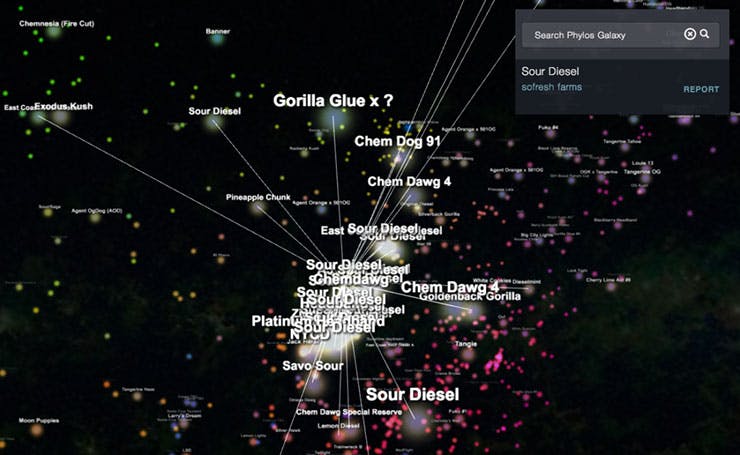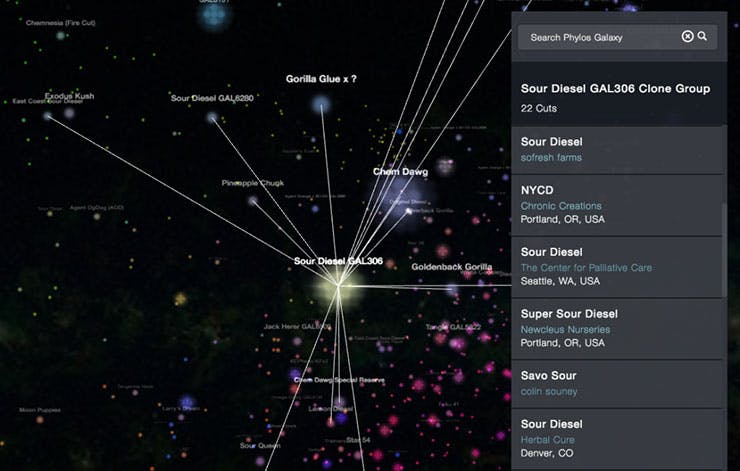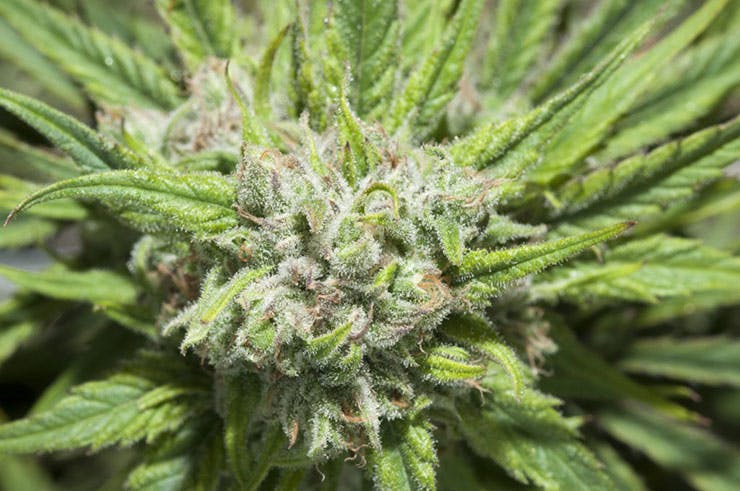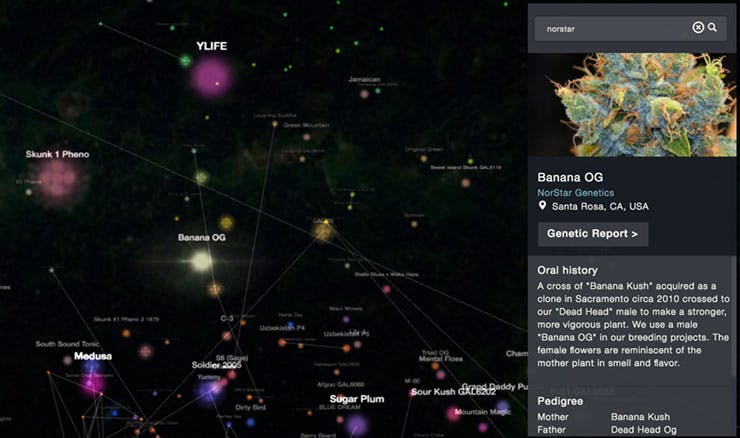We just released a new version of the Phylos Galaxy that includes two significant updates: Clone Groups and Variety Panels. The result is an easier navigation experience and more information about each sample and the grower who submitted them.
Previously, all the cuttings from one variety were shown as nodes on the Galaxy. Even though they’re genetically identical clonal samples, they have very small differences between them and were rarely on exactly the same spot.
Now, those densely-packed and hard-to-read clusters have been collapsed into single Clone Group nodes. Clone Group nodes will be larger than single sample nodes. We used a rigid threshold to define these groups, meaning samples have to be at least 99% genetically identical within our set of genetic variants to make the cut (pun partially intended).

BEFORE: Sour Diesel Cluster

AFTER: Sour Diesel Clone Group
Clone Group Labels
Although every sample still retains its grower-submitted name and data in the new Variety Panels, every Clone Group has also been assigned a label in the Phylos Galaxy. We use an algorithm to generate a label that refers to the most commonly occurring name in the Group.
In cases where we only have two or three cuts and they all have different names, we use an ID to name the Clone Group temporarily. For example, Clone Group GAL322 contains the samples called Pink Champagne, Cotton Candy Kush, Kryptonite, and Cherry Kush. And if two separate Clone Groups end up with the same label, we append the Galaxy ID to the name. Clone Group labels will continue to be informed by new samples and variety name edits.
What’s In a Name?
At Phylos, we provide scientific tools for the cannabis industry to become more transparent, and to provide a higher level of consistency in the marketplace. We will never change grower submitted names, even in cases where they don’t align with the most commonly occurring name in the Clone Group.
Here’s why:
Although plants may be genetically identical, the way they’re grown will always impact how they look, taste, and smell. And all of this affects how they make us feel. While the genotype determines the range of possible traits that a plant may have, growth conditions determine where they’ll be on the spectrum of possibilities.
When unique growers run clones for a long time, their cut can express a different phenotype than another grower because of epigenetic changes that take place as plants adapt to their current environment.
So, DNA isn’t destiny. At least, not completely.
As submitters begin to upload information for their samples, we will begin to better understand how the differences between samples in the same Clone Group can identify the true masters among growers.
Genotype report data determined that Yerba Buena’s recently released Corazon variety is a genetically identical cut within the AC/DC Clone Group. But their farm’s unique growing practices produced some of the highest testing CBD flower in history, with unique flavor and nose.
Their story illustrates how growers can differentiate their products while still providing transparent data about their variety’s exact genotype — a leap forward in the journey to building greater consumer trust.

Corazon by Yerba Buena | IG: @yerba.buena.farms
Share the Knowledge
User submitted data is extremely important to helping everyone understand more about cannabis and how it can affect us. With the addition of Variety Panels on the Galaxy, every sample submitter can now show photos, oral histories, flavor profiles, and (soon!) chemotype data. All of this information will be displayed in the Galaxy alongside your samples.
If you’ve already submitted samples for Phylos Genotype testing, you can now log into your account and add to or edit the information on each of your Galaxy Variety Panels. The future belongs to the community — every grower and breeder who submits a sample for testing is contributing to the movement to make cannabis data available to all.
